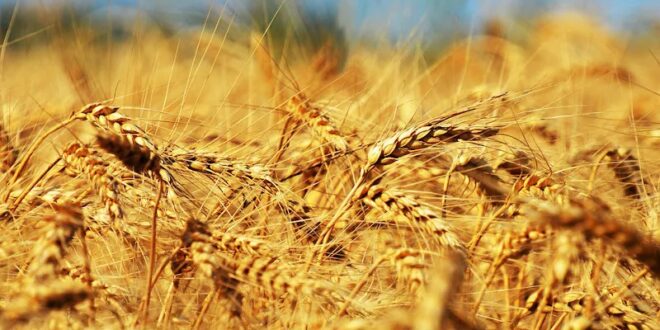It has been a tough year for hundreds of millions of households across the world since Russia invaded Ukraine on 24 February 2022. Major food supply chains, especially for wheat, corn and vegetable oils, were disrupted overnight. The spike in food prices came on top of record high prices caused by food supply chain disruptions stemming from the COVID-19 pandemic. The early prospects were for widespread hunger, even famine.
Some countries did suffer from hunger. Perhaps tens of millions of deaths can be directly attributed to the fallout from the war, mostly due to hunger-linked illnesses. Rich and poor countries incurred massive public debts to mitigate the worst consequences of rapid food and energy price inflation. This is a grim picture of the impact of Russia’s invasion of Ukraine on global food security.
But without downplaying the suffering that did occur, it is important to recognise how much suffering was avoided by informed and vigorous public action, especially in Asia.
In retrospect, three things helped the world to cope — none of them preordained.
First, Ukraine did not collapse in the face of the Russian onslaught. The fierce resistance encouraged a rapid Western response to build up Ukraine’s military capacity, which Ukraine used creatively to stop Russian advances. This caught Russia by surprise and pressured it to allow some grain exports from Black Sea ports. Initial wheat price spikes quickly reversed as commodity traders realised that grain supplies could handle essential demand.
Second, Indonesia’s chairing of the November 2022 G20 summit in Bali was a fortuitous plus. The country has extensive experience managing food crises. Although initially dismissive of adding food security to an agenda that was negotiated by G20 members months earlier, the economic toll from the food crisis triggered by the Russian invasion caused a quick change in approach.
The result was a unanimous G20 declaration that opened with a detailed statement on the food security crisis. The Financial Times headlined their 18 November 2022 story ‘“A remarkable job”: how Russia and China buckled in the face of a united G20’. It quoted one western diplomat as saying, ‘[t]he Indonesians were smart. They started on something everyone could agree on, which was food security, and then built on that’.
Third, research centres, think tanks and NGOs quickly mobilised their staff and knowledge to inform policymakers about what was happening and the likely outcomes of different policy approaches.
In the United States, the International Food Policy Research Institute (IFPRI) set up a special team and website to monitor the rapidly developing food situation. The Washington- and Jakarta-based United States–Indonesia Society (USINDO) organised a high-level forum with IFPRI and international food security experts. They recommended next steps and USINDO provided effective conduits on food security issues to senior Indonesian officials.
Wageningen University in the Netherlands quickly modelled a scenario of potential food security risks and presented it to the European Union as a working paper in July 2022. The Singaporean ISEAS–Yusof Ishak Institute also organised webinars with senior Indonesian officials and local experts, and fostered open communication with the Indonesian G20 team.
The degree of real-time understanding and open communications with relevant policymakers were unparalleled in the history of food crises.
That said, there was understandable panic in many countries about their vulnerability to food shortages. India quickly banned wheat exports and restricted rice exports. After considerable international pushback, India modified its export policies to make them less harmful to trade partners and to support the reliability of the world grain market. The initial flurry of food protectionism — Malaysia even banned chicken exports to Singapore — quickly abated.
But what comes next is uncertain. India and Indonesia have found common ground in dealing with global food security and trying to minimise the impact of the ongoing Russia–Ukraine war.
In an interview with Nikkei Asia on 14 February 2023, Indonesian Finance Minister Sri Mulyani Indrawati pointed to international divides over Russia’s invasion of Ukraine. ‘We will work very closely with India’, she said. ‘[We] are among a few big emerging economies who are performing very well… [the relationship] provides us with more gravitas, more influence and more respect globally’.
With Indonesia chairing ASEAN in 2023 and India hosting the G20 summit in September 2023, the stage is set for quiet and effective diplomacy to continue to keep the world food economy from reaching a crisis point again.
A favourable outcome is not guaranteed because even unanimous G20 agreements cannot be enforced. A clear example is the refusal of key countries to participate in the Agricultural Market Information System, the most important output of the 2011 G20 summit chaired by France.
When domestic grain stocks are considered a state secret — as they are in China — or a matter of national food security — as in India — there are no mechanisms to enforce cooperation. All G20 agreements must be in the national interests of signatory countries if they are to be implemented.
Still, the G20 is an important forum for communication, and as ASEAN’s experience since 2008 shows, such forums can help countries avoid panic in the face of turbulent world grain markets. Mobilising those interests under India’s G20 presidency is now the challenge.
 Eurasia Press & News
Eurasia Press & News




